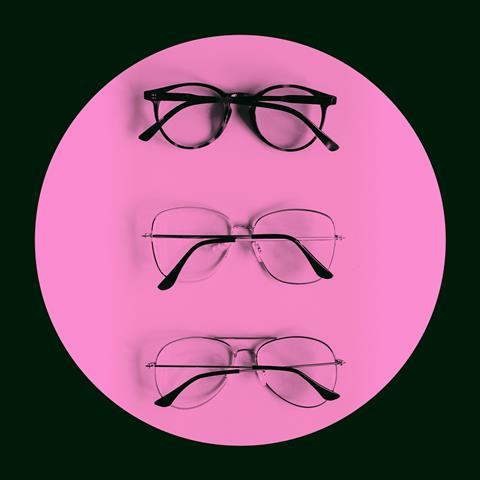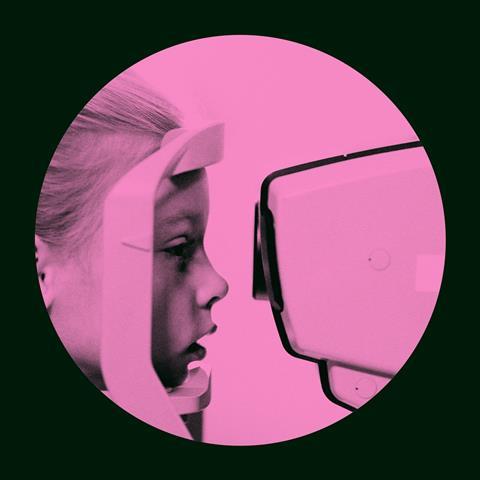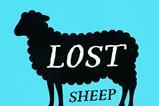Recharge is a Bible study just for you, to nurture your own relationship with God. So, before you even look at the rest of the magazine, take some time out to focus on him. Grab a coffee, sit, breathe and read.

GRANDE LATTE – Job 19
FLAT WHITE – Job 19:23-27
ONE-SHOT ESPRESSO – Job 19:26
“And after my skin has been destroyed, yet in my flesh I will see God.”
I wear glasses and have done since I was eleven years old. I’m short sighted, with the vision of a mole. Before bed I take them off and come the morning, I forget where I’ve put them so each morning begins with a hunt around the house – usually roping in anyone else in the quest – to find my eyesight. It’s a real catch-22.
The reason for my daily travail is that my eye lens and cornea don’t quite match up. Eyesight, when you consider it, is a miraculous thing. Light bounces off an object – for instance a pair of glasses you put down the night before – into the lens of your eye.
That then hits the cornea behind it and bends the light ray towards the retina at the back. Then in some miracle of science beyond my GCSE-level understanding, the brain takes that signal and turns it into the image of the glasses that you did indeed leave on the side of the bath, the top of the alarm clock or by the kitchen sink. All of this, when it works, is incredible.
My problem is that my cornea and my lens don’t work together to do the light bending, so it refracts too soon and turns into a fuzzy mess (not the scientific term) by the time it reaches my retina. The lenses I hunt down daily work like the lens in a fully tip-top eye to bend the light properly so that all comes into clear view. It’s an incredible feat of human ingenuity to work out how to do that and makes my life – and that of the 78 percent of the UK population reliant on glasses or contacts – much more bearable.

I feel a metaphor coming on…
Glasses are not only the reason I’m able to see the screen I’m typing on, but they are also a helpful metaphor for considering our Christian vision. Lenses correct a wonky vision of the world. CS Lewis famously said: “I believe in Christianity as I believe that the sun has risen: not only because I see it, but because by it I see everything else.” Considering our spiritual eyesight may lead us to ask: are we seeing God and God’s creation clearly?
This idea of clear vision brings us to the book of Job…

The Job lot
The book of Job is a strange one. It’s also pretty old. In fact, it’s the oldest book in the Bible in terms of our written record. The book dates long before our current Western understanding of truth as it blurs the line between history and allegory. We have no idea if Job was a real person who walked the earth, but I am certain of a deep truth as the Spirit whispers to us today.
The book tells the story of a man called Job, a man who was three things: healthy, wealthy and godly. The story follows the introduction of Job with the introduction of the Satan, the adversary, the opposer of God who says that the only reason Job is godly is because he is healthy and wealthy. So God calls the Satan’s bluff and says he can take away his health and his wealth but trusts that Job will not lose his faith. God – surprise, surprise – was right.
Meanwhile Job has lost everything. His friends gather around him and sit in the dust of his life for seven days without saying a word. Job breaks the silence, and so begins a conversation many many chapters long pondering how this could have happened.

Eliphaz, Bildad and Zophar’s eye test
Job’s friends begin by wondering if maybe all this is a lesson from God (Job 5:17). This must all be a blessing in disguise, as God is using this to teach Job something. They wonder if Job has some secret sin he is not telling anyone about (Job 18). With each consideration, Job becomes more frustrated knowing that he has been always faithful.
Job’s friends for the most part are a lesson in how not to have a pastoral conversation. Job is wrong when he calls them miserable comforters (Job 16:2). The problem for Eliphaz, Bildad and Zophar is that they are short-sighted in their vision of God.
To them, God is either teaching or punishing. They cannot see God beyond God’s interactions with visible creation, and have no idea about the spiritual warfare that rages about their friend.
Job meanwhile has clear vision. He knows that his redeemer lives. He knows that he will see God (Job 19:27). Job may have lost his health and his wealth, but Job never loses sight of God.

Clear vision
Having clear sight of God is hard in the face of personal suffering, that of our friends, or just from reading the headlines. We too can fall into the trap that Job’s friends do, by only seeing the suffering in the world. In doing so, our vision of God becomes a short-sighted blur in the distance who can only be punishing or teaching.
Just as risky is having a long-sighted view of God. If our view of the world is focused too far beyond this world, it becomes just a blur in the foreground. We ignore the beauty and the suffering in God’s creation, and see God as one who doesn’t see or doesn’t care.
Clear vision is fixing our eyes on our redeemer. The one who we know as Jesus, who chose to become human, to walk this earth bringing miracles and wisdom in his teaching, but he died on the cross and rose again, and who sent the Spirit that we may walk in the light of God.
Seeking this clear vision is a mandate set by Job for us, for our personal witness to friends and family, for the continued building of the Church and for the witness to the world.
TAKEAWAY
Clear vision is fixing our eyes on God. When we do so, our place in the world comes into focus.
PRAYER
Open the eyes of my heart, Lord. Amen.











































